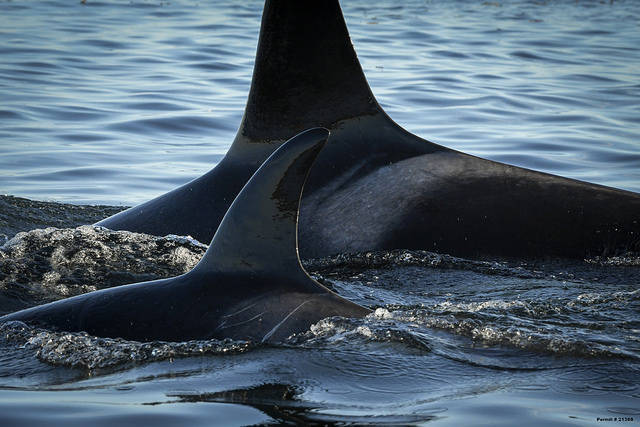Staff report
A thin, sick juvenile orca, who has been missing for days, was spotted by Center for Whale Research staff on Monday, Sept. 3.
According to the center’s website, J50 had not been seen in two days despite intense searching. When she was discovered, staff monitored her and her family for several hours.
Rescue efforts for the nearly 4-year-old Southern resident orca have been underway since August by the National Oceanic Atmospheric Administration officials and Fisheries and Oceans Canada with assistance from the Lummi Nation. J50 has been described as severely emaciated with a possible infection near her blowhole.
Center for Whale Research Founder Ken Balcomb said recovery for the young orca looks bleak.
“…I am certain she will not survive, and it is amazing that she has lasted so long in the condition we saw her at the beginning of summer,” said Balcomb. “This is what extinction looks like when survival is threatened for all by food deprivation. The Southern resident killer whales scarce presence in the Salish Sea is another indication that sufficient food is not available for them here, or along the coast. Natural salmon runs must be restored.”
On Aug. 9, as J pod headed south toward Cape Flattery on the tip of the Olympic Peninsula, a team was able to administer antibiotics via a dart to J50. According to veterinarian Marty Haulena, there was a slight bounce after hitting her body, which meant only half the dose actually went into her system.
The Southern resident killer whales are comprised of three pods, or groups they live in, which are J, K and L. Listed as endangered in 2005, the Southern resident population has continued to decline. J, K and L pods now total 75 whales, the lowest number in approximately 30 years. The biggest issue, researchers believe, is the lack of Chinook salmon, their primary food source.
Visit www.whaleresearch.com for more information.



